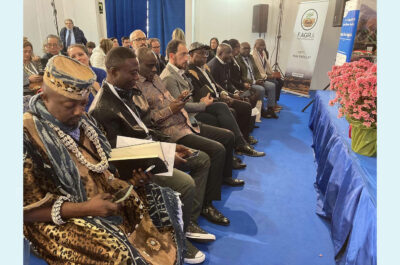Poor are the young girls and boys who fall victims to greedy and devious individuals and organized criminals who trade them for sex. These children are usually between the ages of 13 and 18 years. East African beach towns of Kenya, Tanzania, Uganda and Zanzibar are vastly popular as leading destinations in sex tourism, notably dominated by the Italian market.
According to a global report by World Tourism Organization, about 3 million people travel to exotic destinations across the globe while engaging in sex tourism. Unfortunately, this constantly growing phenomenon is mostly felt in regions that also top the charts as leading tourist destinations. East Africa for instance, has in many occasions been endorsed as one of the most preferred tourist destinations in Africa, thanks to its zesty sceneries, wildlife and beaches. With such popularity, the eastern region also tops the chart as a flourishing sex tourism destination. Regrettably, the fundamental concept of leisure travel is sometimes wrongly perceived by a number of people whose travel objective is to engage in sexual activities with the ‘hosts’. It can either be voluntary, where the parties involved are aware and willing to engage, or – and in most cases – exploitative.
The complexity of this topic has sidelined it from being spoken about, a factor that has greatly contributed to the clandestine nature of sex tourism. Efforts to curb this culture especially along the coastal areas have proved futile, with several factors being attributed to the failure. Let’s face it; sex tourism mostly takes place among people who are willing to pay for the service and those willing to trade their bodies for the cash. With thousands of jobless youth driven by poverty to make easy money, we should not expect this trend to change, unless the unemployment giant is killed.
Poor are the young girls and boys who fall victims to greedy and devious individuals and organized criminals who trade them for sex. These children are usually between the ages of 13 and 18 years. East African beach towns of Kenya, Tanzania, Uganda and Zanzibar are vastly popular as leading destinations in sex tourism, notably dominated by the Italian market. According to UNICEF, the local population makes the highest percentage of participators at 38%, followed by the Italians at 18%. ECPAT (End Child Prostitution, Child Pornography and Trafficking of Children for Sexual Purposes) further shows that 60% of these tourists who travel every year to exotic destinations with the aim of engaging in sexual activities with children are occasional tourists.
It’s no doubt that children remain the most affected by this illegal trade. National as well as international laws have therefore been put in place to protect the children, including the UNCRC, which states that children and young people have a right to protection from all kinds of abuse, including commercial sexual exploitation. However, challenges such as lack of proper law enforcement and the covert nature of the business continue to frustrate efforts to end this trend. Yet, among other measures, recent developments in online hotel booking systems may just be the elucidation to ending this craze.
Take Africa’s leading online hotel booking portal, Jovago.com, for instance. While the company has all possible details of its listed hotels, it also ensures to capture the most important details of clients who book through them. With such data, it is possible to know which tourist is in which particular hotel for purposes of security. If by any chance that tourist was to engage in any illegal business in the particular country, then reaching him/her for investigations is a sure bet. With several instances of fraud cases among tourists, most online booking companies also have fraud departments working towards curbing potential charlatans; the information collected here can be used by organizations working against sex tourism and exploitation to identify and even track down perpetrators.
Hopefully, with concerted efforts from concerned stakeholders, sex tourism in East Africa will once be an obsolete topic. Elimination of poverty and job creation among other contributors ought to be urgently addressed, failure to which more children will be lost to sex trade, the spread of sexually transmitted diseases will continue to rise and the picture of the region’s tourism industry in general shall continue to be tainted amidst all the projected growth.
Credit: Josephine Wawira, Jovago
Josephine Wawira is Global PR Assistant at Jumia Travel.






































































































































































